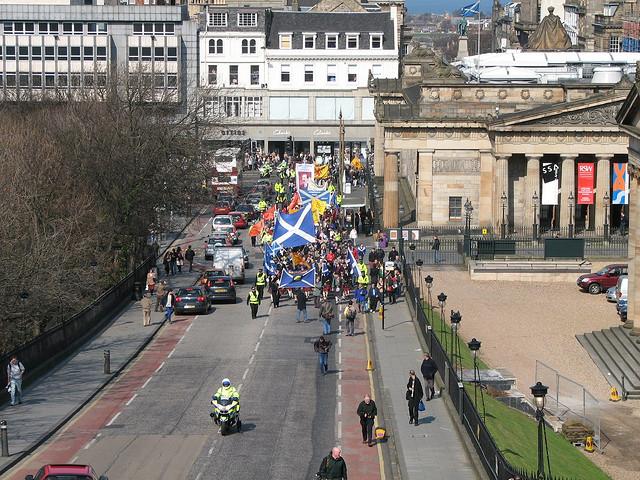As a result of September 18th’s referendum, Scotland has become the first country in history to reject its own independence. Of the 85% of Scotland’s electorate, augmented by newly-enfranchised sixteen- and seventeen-year-old voters, a majority of 55.3% elected to remain in the United Kingdom. Although this marks a definitive win for the “Better Together” movement, the “Yes” campaign still garnered over 1.6 million votes, making it clear that Scottish independence has a large support base. However, the vote was expected to be much closer; the week before the referendum, no poll run declared a disparity of more than 5% between the ‘Yes’ and ‘No’ campaigns, with most, such as the Scotland Times, settling around a 4% difference.
While the independence movement lost the vote, it won recognition within political and social spheres. Prior to 2014, independence was typically viewed as a radical idea, politically unfeasible and unpopular with the people. Nate Silver, creator of fivethirtyeight.com, a prominent political blog, predicted an easy win for the ‘Better Together’ team as late as 2013, stating that “it’s a question of how much the ‘no’ side will win by, not what the outcome might be.” However, in the months leading up to the referendum, the ‘Yes’ campaign, headed by First Minister Alex Salmond, focused the people’s resentment of England, allowing the question of Scottish independence to progress from a small elected assembly vote in 1979 to a nation-wide referendum.
So what happens in Scotland now? Although its sustained alliance with Great Britain grants political continuity, the Scottish people have a conflicted national identity. Riots in Glasgow followed the referendum, illustrating the nation’s turmoil over its national standing and its strained relationship with Great Britain, a longtime source of contention. Many Scots, especially supporters of the Scottish National Party, doubt England’s promises of reform, arguing that, under the current system, the Scottish are too dependent on England, both financially and politically.
“Scotland is not independent and I swear it seems even the ‘no’ voters are disappointed,” comments Scottish university student Emma Puschman, reflecting the general mood of dissatisfaction. While the question of independence is settled, the debate has switched to David Cameron’s promised devolution, which would give the Scottish Parliament the power to raise taxes as it removed their ability to vote on English legislation. In the aftermath of the independence referendum, Scotland will continue to face such dividing issues as it seeks to reunite itself.
Sources
